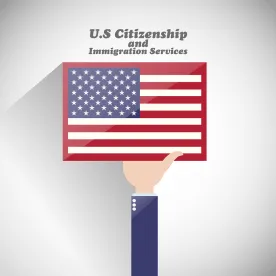On July 31, 2020, the U.S. Department of Homeland Security (DHS) announced a final rule that will adjust fees for specific immigration and naturalization benefit requests to “ensure U.S. Citizenship and Immigration Services [USCIS] recovers its costs of services.” Unlike most government agencies, USCIS is fee funded and the announcement comes amid concerns about potential furloughs at USCIS due to a budgetary shortfall.
According to DHS, immigration fees will increase by a weighted average of 20 percent across the board. In reality, however, the fee changes will not affect all immigration benefits equally. Fees for some commonly used classifications are set to go up significantly. Petitions for L visas, for example, will increase by 75 percent, whereas fees for other petitions, such as Form I-140, Immigrant Petition for Alien Workers, will decrease. In addition to the changes in the fee schedule, DHS has announced updates regarding premium processing; versions of Form I-129, Petition for a Nonimmigrant Worker; and adjustment of status applications. DHS announced the rule proposing these changes in November 2019 for public notice and comment, and the agency made minimal changes between the proposed and final rules. All changes are scheduled to take effect on October 2, 2020.
The following is a sample of the fee changes scheduled to take effect for some of the most commonly used business immigration benefits.
|
Immigration Form |
Current Fee |
Final Fee |
Difference in Cost |
Percent Change |
|
I-129H1, Petition for Nonimmigrant Worker: H-1 Classification (H-1B, H-1B1) |
$460 |
$555 |
+$95 |
+21 |
|
I-129L, Petition for Nonimmigrant Worker: L Classification (L-1A, L-1B, Blanket L) |
$460 |
$805 |
+$345 |
+75 |
|
I-129E&TN, Petition for Nonimmigrant Worker: E or TN Classification |
$460 |
$695 |
+$235 |
+51 |
|
I-129O, Petition for Nonimmigrant Worker: O Classification |
$460 |
$705 |
+$245 |
+53 |
|
I-539, Application to Extend/Change Nonimmigrant Status (online filing) |
$370 |
$390 |
+$20 |
+5 |
|
I-539, Application to Extend/Change Nonimmigrant Status (paper filing) |
$370 |
$400 |
+$30 |
+8 |
|
I-140, Immigrant Petition for Alien Workers |
$700 |
$555 |
-$145 |
-21 |
|
I-485, Application to Register Permanent Residence or Adjust Status |
$1,140 (the $85 biometrics fee is currently charged separately) |
$1,130 |
-$10 |
-1 |
|
I-485, Application to Register Permanent Residence or Adjust Status for applicant under the age of 14 |
$750 |
$1,130 |
+$380 |
+51 |
|
I-765, Application for Employment Authorization |
$410 |
$550 |
+$140 |
+34 |
|
I-765, Application for Employment Authorization (Deferred Action for Childhood Arrivals (DACA)) |
$410 |
$410 |
$0 |
0 |
|
I-131, Application for Travel Document |
$575 |
$590 |
+$15 |
+3 |
|
N-400, Application for Naturalization (online filing) |
$640 |
$1,160 |
+$520 |
+81 |
|
N-400, Application for Naturalization (paper filing) |
$640 |
$1,170 |
+$530 |
+83 |
Additional Changes
The final rule will affect more than just immigration fees. DHS has also announced that it will make the following process changes.
Premium Processing
-
DHS will extend the premium processing timeframe so that the agency has 15 business days to process petitions and applications, as opposed to 15 calendar DHS states that this change will allow USCIS more time to process cases and may eliminate the need to temporarily suspend premium processing when requests are high, as has become more frequent over the past few years.
-
No additional fee changes for premium processing are included in the announced fee schedule.
Nonimmigrant Visas
-
Instead of a single Form I-129 that can be used for multiple visa classifications (such as H-1B, L, E, and TN), there will be several forms for each specific visa classification (as identified in the chart above). DHS states that the new forms “will simplify or consolidate the information requirements for petitioners and applicants as well as better reflect the cost to adjudicate each specific nonimmigrant classification type.”
-
The different Form I-129 types will each have a distinct fee.
-
If a Form I-129 is filed for a worker who is present in the United States, the petitioner must provide the worker’s domestic address when completing the form. This information has not previously been required.
Adjustment of Status Applications
-
DHS will now require applicants to pay a separate fee to apply for work authorization and travel documents, even if filing concurrently with Form I-485, Application to Register Permanent Residence or Adjust Status. Presently, Form I-765, Application for Employment Authorization, and Form I-131, Application for Travel Document, may be filed concurrently with a Form I-485 without an additional fee. Employment authorization document and advance parole (EAD/AP) renewals have also historically been exempt from filing fees.
-
The requirement to pay separate fees will be phased in according to the chart below (assuming a Form I-485 is still pending).
|
Date I-485 Filed |
Payment of Separate Fees Required? |
|
Before July 30, 2007 |
Yes. |
|
On or after July 30, 2007, but before October 2, 2020 |
No. |
|
On or after October 2, 2020 |
Yes. |
-
The total fee for filing Form I-485 with all benefits, including EAD/AP, will be $2,270 as opposed to the current $1,225—an increase of 85 percent.
-
The proposed base fee ($1,310) for Form I-485 will apply to all applicants, including children 14 years old or younger who are filing with their parents. (The current fee is $750 for children under 14.)
Biometrics Fees
-
A biometrics fee will be incorporated into the filing fee for the underlying benefit and will no longer be charged as a separate fee, in most cases.
-
The biometrics fee will remain a separate fee for temporary protected status (TPS) applications.




 />i
/>i

